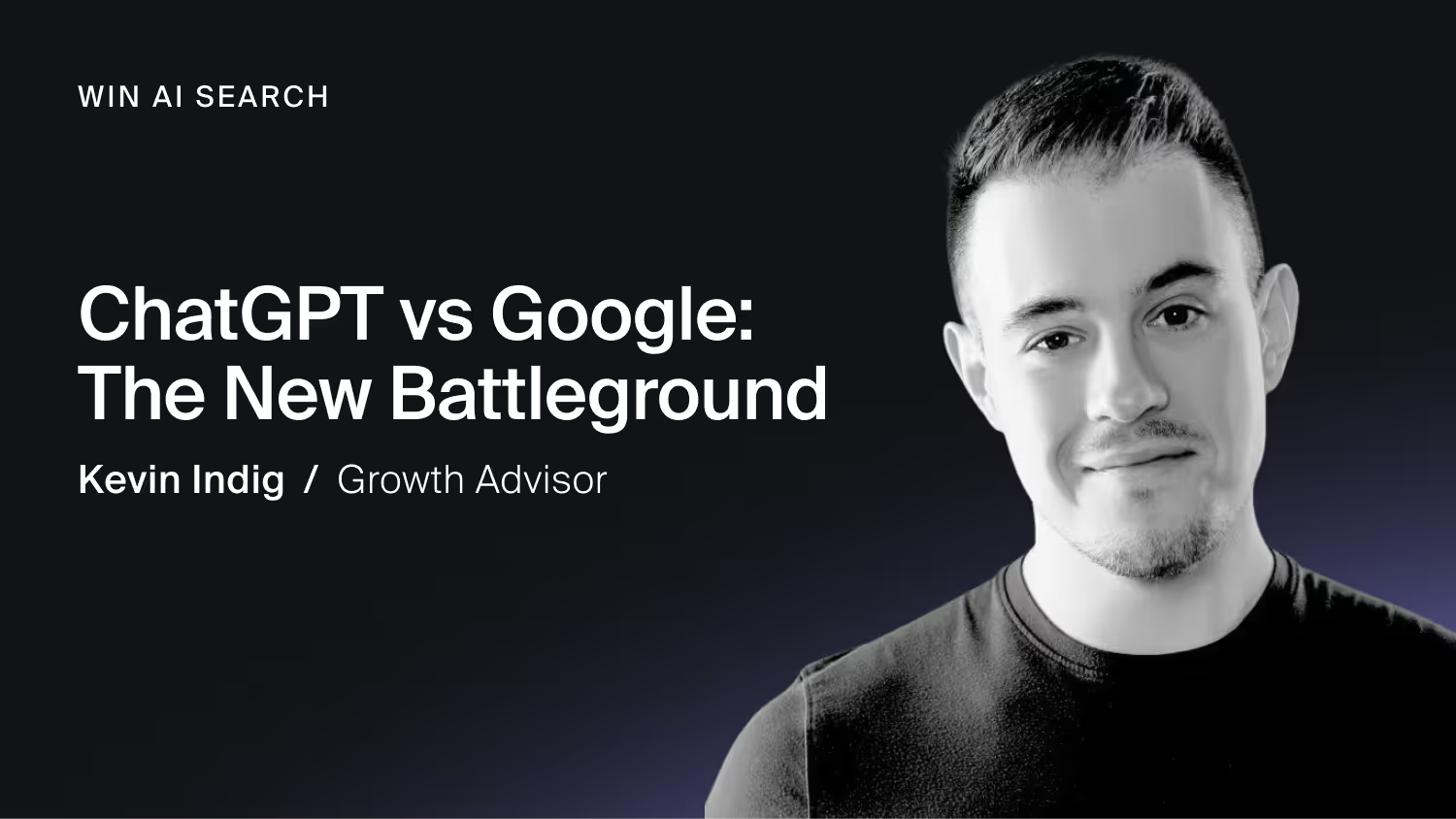Webinar Recap: AI + BoFu: Tactics to Unlock Revenue with Animalz, Webflow & Bofu.ai

In a recent AirOps webinar, Ty Magnin (Animalz), Vivian Hoang (Webflow), and Lashay Lewis (Bofu.ai) joined host Josh Spilker to explore how AI-driven search is making bottom-of-funnel (BoFu) content the new revenue engine.
They shared their top strategies for creating high-converting bottom funnel content across traditional and AI search.
Top 5 Takeaways
- AI search elevates the importance of bottom-of-funnel (BoFu) content
AI search is shifting value from top-of-funnel to BoFu content that drives pipeline and revenue. - Context-rich, customer-centric content wins in LLMs
Content that mirrors real customer context and pain points is much more likely to surface in large language models (LLMs). - Balancing speed and depth: AI for efficiency, humans for expertise
AI speeds up repetitive work, but subject matter expertise and trust still need a human touch. - Signal-driven SEO and structured content boost brand visibility
Brands need to optimize both on-site content and external signals to earn citations and conversions from AI search. - Workflows and automation enable scalable, high-impact BoFu content
Teams are building modular workflows and automation to refresh, structure, and scale BoFu content for measurable results.
Best Practices and Key Learnings
Focus on BoFu content that drives real revenue
BoFu content is now a big lever for pipeline and conversions. AI search engines answer basic queries directly, so brands need to create content that addresses high-intent, specific needs.
- Prioritize content that helps buyers make decisions, such as product comparisons, solution pages, and detailed feature breakdowns.
- Use internal customer data and sales insights to inform topics and messaging.
- Measure impact based on conversion rates and direct pipeline attribution.
"AI is kind of eating top-of-funnel content in a way… if I go to an LLM and I type in, what is project management. The LLM can tell me what is project management without having to cite an external reference." — Lashay Lewis
Make context and specificity your competitive edge
LLMs reward content that's deeply contextual and mirrors how users actually describe their problems. Generic overviews get ignored.
- Write content that addresses nuanced, real-world scenarios and pain points.
- Mirror customer language and context in your copy, not just keywords.
- Structure articles to answer complex, conversational queries.
"LLM searches tend to be more contextual, meaning that it's conversational… our content has to get more deep and specific with how we're writing it and who we're addressing." — Lashay Lewis
Use AI for speed, but keep humans in the loop for depth and trust
AI can accelerate research, formatting, and content refreshes. But relying on AI alone can erode authority and require heavy editing.
- Automate repetitive, structured tasks like outlines, FAQs, and competitor research.
- Assign humans to high-stakes content, editorial review, and expert-driven topics.
- Regularly audit AI-generated content for quality and accuracy.
"Speed wins when you're doing, like, repeatable, structured tasks… but you really need to lean into depth and trust when you're establishing those authority signals." — Vivian Hoang
Build signal-driven SEO strategies for both LLMs and humans
Visibility in AI search depends on both earned (off-site) and owned (on-site) signals. Structured content and external mentions both matter.
- Invest in external signals: earn citations from review sites, social communities, and industry publications.
- Structure on-site content with clear FAQs, schema markup, and internal documentation.
- Align content strategy with company goals and cross-functional input.
- Webflow accelerated their content refreshes 5x with AirOps
Scale BoFu content with modular workflows and automation
Leading teams use modular workflows and automation to refresh, structure, and scale high-impact BoFu content.
- Automate FAQ generation and content refreshes using internal docs and real user questions.
- Build research libraries and knowledge bases to inform content creation and thought leadership.
- Map your content workflows to define where AI can help and where human expertise is essential.
We put a ton of content into two different kinds of knowledge bases. One is for customers, with a bunch of their IP… and then we'll try and produce more of it via interviews, via original research, over time that we can extract into different content assets, so that everything we publish has that element of thought leadership.” — Ty Magnin
How to put these AI + BoFu insights into practice
AI-driven search is shifting the value of content down the funnel. Brands that focus on context-rich, signal-driven, and conversion-focused BoFu content will win more pipeline and revenue. The days of generic top-of-funnel content as a traffic play are fading.
To get results, map your workflows to automate where possible, but keep human expertise at the core of your most important content. Invest in both on-site structure and off-site signals, and measure success by conversions and citations—not just rankings.
If you haven't already, it's time to rethink your strategies for visibility and revenue. By focusing on BoFu content, using AI for efficiency, and optimizing for both LLMs and human buyers, you'll set your team up for measurable impact.
Want to see how AirOps helps teams build scalable, revenue-focused BoFu content? Book a call to get started.
Win AI Search.
Increase brand visibility across AI search and Google with the only platform taking you from insights to action.
Get the latest on AI content & marketing
Get the latest in growth and AI workflows delivered to your inbox each week




.avif)


